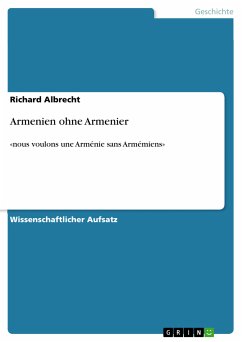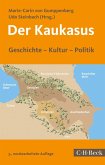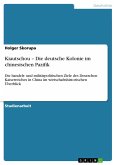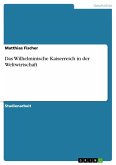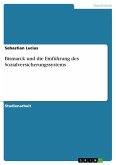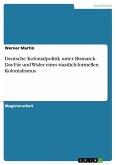Wissenschaftlicher Aufsatz aus dem Jahr 2008 im Fachbereich Geschichte Deutschlands - 1848, Kaiserreich, Imperialismus, , Sprache: Deutsch, Abstract: In this scholarly essay the author, an experienced social scientist, goes the way from the last phase before World War I to the last stage of World War II. After claiming the field, naming the problem, and explaining why he is, in a scholarly manner, working "narratively", the author presents systematically and comments critically various images of the Armenians as "the jews of the orient" widespread within the German public. This as specific as negative view of the Armenians basically meant (and often still means), above all, a racial stereotype picturing a people in a way escalating "the jews" as defraudulent dealer, and habitual liar, sometimes even with criminal background. Whereas in scholarly texts published in the first German edition of "Enclyclopädie des Islam" before and after World War I a neutral picture of the Armenian as an ethnic group without a state of their own was painted, in German society during the ¿Great War¿ 1914/18 under conditions of military dictatorship and effective censorship above all a sort of "deutsch-tuerkische Waffenbruederschaft" (German-Turkish armend brotherhood) was widely proclaimed, stigmatising the Armenians as a minor ethnic group, and, if not denying at all, at least partly justifying what the author names Armenocide as the first ¿modern¿ genocide within 20th century ¿back in the very Turkey¿. After the Lausanne Treaty (July 23, 1923) was accepted by the "Turkish nationalist movement" as represented by the former Young Turk Mustafa Kemal, the "new Turkey" was founded (October 23, 1923) and constitutionalized (April 24, 1924). In a way, Kemal and his followers, in so far tremendous successful political figures and inspirers for Adolf Hilter, realised that dystopian concept as coined out both by Osmanian and Young Turk rulers: "Armenia without Armenians".
Dieser Download kann aus rechtlichen Gründen nur mit Rechnungsadresse in A, B, BG, CY, CZ, D, DK, EW, E, FIN, F, GR, HR, H, IRL, I, LT, L, LR, M, NL, PL, P, R, S, SLO, SK ausgeliefert werden.

